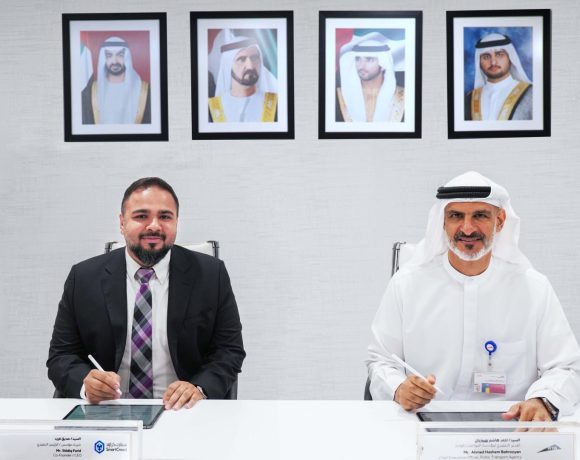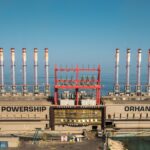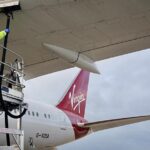Wave of optimism within the construction sector

Dubai, United Arab Emirates; February 21, 2023 – Supported by the UAE’s strong development agenda, Projects of the 50 initiative, as well as the subsequent focus on industrial, transportation, and energy infrastructure aiming to attract nearly $150 billion in foreign direct investment by 2030, the country’s construction sector is expected to thrive at an encouraging pace. Global Data indicates that the sector’s growth output is slated to increase by over 3.0% year-on-year.
According to Emirates NBD Research, Dubai’s construction sector performed moderately throughout 2022, with business activity remaining high against conservative new work growth. The index rose 2.2 points from November 2022 to 55.4 in December, after averaging 51.0 during Q3. The December index was the highest among Dubai’s travel and tourism, wholesale and retail, and private non-oil sector indices.
Amid sub-sectors, the residential segment maintained its upward trend, with 44,000 units delivered in Abu Dhabi and Dubai since 2022. Furthermore, flagship projects such as Expo 2020 Dubai, and the Museum of the Future, coupled with a strong pipeline entailing the opening of Sea World and the Natural History Museum in the capital, continue to aid the ongoing recovery of the tourism and hospitality sector while snowballing on the country’s cultural project investments.
In addition, with the UAE government announcing their federal budget expenditure of over 252 billion Dirhams between 2023 and 2026 in October 2022, the largest proportion, 39% was allocated to the social development and benefits sector. Therefore, catalyzing future construction developments through highest levels of social welfare, healthcare, education, economic environment enhancements and investment infrastructure within the country.
Besides, another major factor fueling the growth of the construction industry is the improvement in oil prices which averaged for $100 per barrel, further supporting the GDP momentum which was estimated to grow by 7% in 2022. Thus, offering oil producing nations like the UAE opportunities to fund economic diversification through development transformation.
In terms of projects, according to MEED Projects, the UAE held a 13% market share with a recorded $19 billion worth of project awards against an overall MENA total of $142 billion in December 2022, compared to $187 billion in 2021. With regard to the value of project awards, the construction sector accounted for 60% of it, with residential, mixed-use, cultural, and commercial as the leading segments.
Laura Morgan, Market Intelligence Lead MEA at JLL MENA said: “On the heels of projects such as District 2020, and the unveiling of Dubai Economic Agenda – D33, improving oil prices, anticipated growth of sub-segments, combined with the market offering a certain level of comfort owing to price stability, we are optimistic that the construction industry will continue to rebound significantly in 2023. That said, evolving trends such as sustainability, technology, and innovation will become key tenets shaping the sector, especially in light of it playing a significant part in achieving the UAE’s vision strategies.”
JLL’s market intelligence data obtained through discussions with local contractors identified that global economic volatility in the first half of 2022 created challenges within the local construction market in relation to delivery lead times and instant price increases, with suppliers reluctant to guarantee prices for extended durations.
Construction materials linked to aluminum, such as façade systems, Rebar, and MEP elements like generators and semi-conductors, saw the greatest impact in connection with delivery shipping time, leading to financial bearing and contractors citing the need to micromanage the supply chain to mitigate risks and safeguard project programs, budgets, as well as cash flow.
However, improvements were observed between Q2 and Q4 2022, indicating that price peaks may have passed; that said, price increases continue to be a significant risk due to the immediate effect economic forces can have on the construction sector, as evidenced by trends since 2020. Therefore, contractors and developers are proceeding with caution.
Future construction costs will be balanced against the local market and global economic factors. While commodity and other construction material prices are softening, the MENA construction sector is strong and reliant on material imports from outside the region, which in turn could attract greater costs. Hence, mitigation strategies are high on the agenda intensified by volatile market conditions and rising construction material prices of which the industry witnessed a price peak in Q2 2022.
According to a survey conducted by JLL with local contractors in the UAE during Q2 and Q3 2022, the main risks within the construction industry impacting business operations today are price fluctuations within the supply chain leading to declining enquiries, followed by bonding requirements, reduced competency, and labor shortage, which also entails a gap in the market for a greater supply of MEP contractors, cashflow / non-payment, and amended construction contracts.
When it comes to client demands, lower pricing continues to play a key role in the fate of traditional projects. With more Design and Build-type projects making their way into the UAE market, there is likely to be an upward trend of the best value with a greater emphasis on technical compliance over lower cost. The participating contractors also stated that they are aware that the price must fit a developer’s financial model, resulting in consistent pressure to align contractor prices with the approved budget.
In terms of the rising petition for sustainability within the sector, the majority of contractors underlined that sustainability requirements are frequently addressed during the design process, which is often Estidama or LEED-focused, while others emphasized that increased demand for sustainability is met through operational green protocols, the implementation of modern methods of construction, evaluating construction operations, educating and training staff, assigning an internal specialist and sourcing alternative products by supply chain evaluation.
Pertaining to tender price inflation, it is estimated that it has increased by an annual average percentage change of 3.5% in 2022 compared to the initial forecast of 2% to 5% pegged from increases during Q2 to Q3 2022. The upsurge is representative of market factors linked to commodity and construction material price fluctuations, evaluated from tender return cost data, market testing, and commodity price trends. Year-on-year growth of 2% is anticipated in 2023 associated with the estimated project pipeline value correlated to future demand and JLL’s intelligence gathered from market sources.
Last Updated on 2 years by News Desk 2













